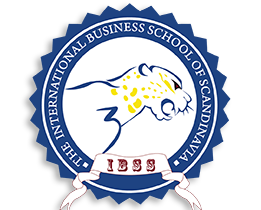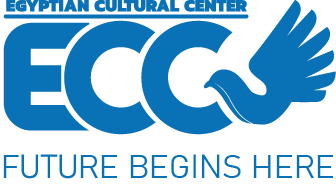Masters of Business Administration
IBSS + SSBH


- Opportunities for learners to acquire knowledge and understanding and develop a range of skills, personal qualities and attitudes essential for successful performance in working life.
- Specialisms that are directly related to learners’ current responsibilities or that meet a particular interest and support career development.
- Opportunities for learners who wish to undertake apart time degree of study leading to get MBA.
| MODULE NAME | Credit Hours |
|---|---|
| Personal Development for Leadership & Strategic Management | 15 |
| Organizational Behavior | 15 |
| Finance for Strategic Managers | 15 |
| Strategic Planning | 15 |
| Research for Strategic Development | 15 |
| International Business Environment | 15 |
| Strategic Human Resource Management | 15 |
| International Marketing | 15 |
| thesis | 60 |
| Total | 180 |
1
PERSONAL DEVELOPMENT FOR LEADERSHIP AND STRATEGIC MANAGEMENT
Unit Aims:
This unit aims to help learners develop their own personal leadership and management skills in the context of the creation and achievement of organisational vision and strategic direction.
Learning outcomes:
1. Understand how knowledge and skills in leadership and strategic management support the creation and achievement of organisational vision and strategy
-
- Analyze the knowledge and skills in leadership and strategic management which are required to support the creation and achievement of organisational vision and strategy
- Assess the contribution that factors other than knowledge and skills in leadership and strategic management make to the achievement of organisational vision and strategy
2. Understand how to develop and communicate organisational vision
-
- Analyze the factors which impact on the creation of organisational vision.
- Assess the different approaches to developing vision.
- Evaluate the key factors which impact on the communication of vision to external Stakeholders.
3. Be able to manage development of own personal knowledge and skills in leadership and strategic management to support achievement of personal and organisational vision and strategy
-
- Review theories of leadership and management and assess the implications for your personal development.
- Carry out an audit of own personal leadership and management knowledge and skills which facilitate the creation and achievement of organizational vision and strategy.
4. Be able to reflect on the benefits of personal development in the achievement of personal growth and organizational vision and strategy
-
- Assess the benefits of review and explain when this tool can be used in the achievement of personal and organisational strategy.
- Evaluate the sources of information needed to review progress with achieving personal development plans.
2
ORGANIZATIONAL BEHAVIOR
Unit aims:
The aim of this unit is to help learners develop an understanding of how organisational behavior, structure, culture, motivation, creativity and leadership impact on an organisation’s effectiveness and efficiency.
Learning outcomes:
- Understand leadership behaviour theory and practice.
-
- Evaluate different leadership behaviour theories.
- Analyse theories relating to work relationships and interaction.
- Understand how organisational structures and culture impact on the effectiveness of the organisation.
-
- Analyse characteristics of different organisational structures
- Explain how the culture of an organisation can impact on the effectiveness of the organization
- Understand how organisations can improve employee effectiveness to respond to business opportunities
-
- Assess the impact of learning on the effectiveness of employees
- Evaluate how working in teams can improve employee effectiveness
4.Understand how organisations can motivate employees in order to improve their efficiency and effectiveness
-
- Analyse the benefits and issues with involving employees in organizational decision making
- Explain different ways to motivate employees
3
INTERNATIONAL BUSINESS ENVIRONMENT
Unit aims:
The unit will enable learners to explore the changing international business environment and develop knowledge and understanding of how organisations respond.
Learning outcomes:
- Be able to analyse the international business environment
-
- Evaluate business techniques used to analyse the international business environment.
- Analyse the micro and macro environment of a specific business organisation which operates on an international level.
- Understand the impact of globalization and international trade
-
- Assess the impact of globalization and international trade on national economies.
- Assess the benefits, opportunities and challenges of globalization and international trade for a specific business organization.
- Understand the international markets in which businesses operate
-
- Analyse the implications for businesses of the cultural and regulatory diversity in international markets.
- Evaluate the potential conflicts between corporate strategy and ethical, social and sustainable responsibilities.
- Assess the importance of Corporate Social Responsibility and Sustainability in supporting business success.
4
FINANCE FOR STRATEGIC MANAGERS
Unit aims:
The learners will develop knowledge, understanding and skill that will enable them to analyse internal and publicly available financial information. This will help to inform strategic decision making.
Learning outcomes:
- Understand the importance of financial data in formulating and delivering business strategy
-
- Evaluate the sources of financial data which can be used to inform business strategy
- Assess the need for financial data and information in relation to business strategy
- Analyse the risks related to financial business decisions
- Be able to analyse financial data for an organisation in order to inform strategic decision making purposes
-
- Interpret financial statements to assess the viability of an organisation
- Conduct comparative analysis of financial data using ratio analysis
- Be able to evaluate proposals for strategic decisions on capital expenditure in an organization
-
- Review methods for appraising strategic capital expenditure projects and strategic direction
- Evaluate business proposals for capital expenditure in an organisation using appropriate financial techniques.
5
STRATEGIC PLANNING
Unit aims:
The aim of this unit is to develop the knowledge, understanding and skills necessary to develop an organisational strategic plan.
Learning outcomes:
- Understand the foundations for developing organizational strategy
-
- Explain the relationship between mission, vision, strategy and business plans
- Analyse named organisations’ mission and vision statements
- Understand the external environment affecting organisations
-
- Explain how external factors affect organizations
- Evaluate how stakeholder expectations influence organizations
- Be able to review an organisation’s strategy and business plans
-
- Explain the importance of review in the development of organisational strategy and business plans
- Evaluate the tools which can be used to review organisational strategy and business plans
- Be able to develop strategy options for an organization
-
- Use modelling tools to develop strategy options for an organisation
- Develop criteria for reviewing th otential strategy options e potential strategy options
- Understand how to create a strategic plan to meet business objectives
-
- Explain the structure of a plan needed to deliver a strategy
- Explain how stakeholders are involved in the formulation of the plan
6
STRATEGIC HUMAN RESOURCE MANAGEMENT
Unit aims:
The aim of this unit is to help learners acquire knowledge and understanding of human resource management strategy and its impact on the efficiency of an organization.
Learning outcomes:
- Understand the factors affecting human resource management strategies in organisations
-
- Analyse the effect of organisational structure and culture on human resource management strategies in organizations.
- Assess the importance of financial resources in creating a human resource management strategy.
- Understand how strategic human resource management contributes to the achievement of the strategic plans of organisations
-
- Analyse different models of strategic human resource management.
- Explain how human resource management contributes to the achievement of strategic plans.
- Understand how to prepare human resource management strategies for organisations
-
- Assess factors to be considered when preparing human resource management strategies.
- Evaluate key elements of a human resource management strategy.
- Be able to develop a human resource management strategy for an organization
-
- Develop a human resource management strategy for an organisation.
- Explain how the proposed human resource management strategy will support achievement of business objectives.
7
INTERNATIONAL MARKETING
Unit aim:
This unit enables learners to understand the requirements of international marketing, in particular, the financial considerations to be taken into account in entering and operating in international markets. Learners will also be able to develop an international marketing strategy and understand the implications and requirements of international marketing communications.
Learning outcomes:
- Understand the implications of international marketing for organisations
-
- Assess the market research requirements for international marketing.
- Analyse how the business case for international marketing can be justified.
- Assess the risks which must be considered for international marketing.
- Understand how to develop an international marketing strategy
-
- Analyse the features of international markets.
- Evaluate the operational considerations that should be taken into account when developing an international marketing strategy.
- Analyse the characteristics of an international marketing strategy.
- Understand the requirements of international marketing communications
-
- Evaluate the way in which local customs, culture, language and ethical considerations may affect marketing communications.
- Assess the role of technology in international marketing communications.
- Assess the implications and requirements of different sales and marketing communications strategies.
8
RESEARCH FOR STRATEGIC DEVELOPMENT
Unit aims:
The aim of this unit is to develop the knowledge, understanding and skills required to carry out research to meet the needs of strategic business management.
Learning outcomes:
- Be able to formulate a research proposal relating to strategic business development
-
- Identify a valid area for research to support the strategic development of a business area.
- Explain the aim, scope and objectives for a chosen area of research in strategic business development.
- Establish success criteria for the achievement of the research proposal.
- Be able to use different research methodologies to gather sufficient and valid data
-
- Review different literature sources to find those most appropriate for the chosen area of research.
- Use appropriate research methodologies to gather sufficient information from primary and secondary sources to make valid conclusions.
- Be able to present research findings in an appropriate format for a target audience
-
- Prepare a report that provides a comprehensive explanation of the purpose, methodologies, findings and recommendations.
- Reference all sources using a recognised system.
- Use the information collected to justify conclusions and recommendations.
- Be able to evaluate own skills while undertaking research
-
- Review own skills linked to own research using personal reflection and feedback.
- Make recommendations on ways to improve own skills while undertaking research.
Cash
Installment *
*Installment Plan has to pay 6000 LE for Application Fee and 6000 LE for 5 installments.
Cash
Installment *
*Installment Plan has to pay 500$ for Application Fee and 500$ for 5 Installments.
ATHE provides colleges with qualifications in management, business, tourism and health & social care, we have made a name for ourselves with good customer service, rewarding qualifications and happy learners with progression routes to university degrees.


ISO 29990 is a quality management system especially applicable for LSPs. Certification
against this standard will enhance the quality of your offerings and enable you to become
the preferred choice of your customers. This standardspecifies a unified approach and requirement for LSPs, like corporations,vocational training institutions, life-long learning centers
and non-conventional corporate training providers around the world.
EduQua is the first Swiss quality label geared towards providers of adult learning programmers. The label promotes transparency and comparability of adult learning for the benefit of consumers and contributes to
safeguarding the quality of adult education programmers in Switzerland. More than 1,000 schools, institute

